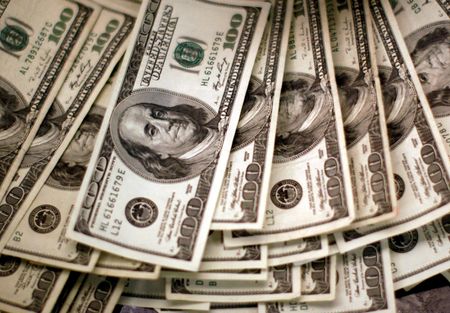 1
1 1
1

By Kevin Buckland
TOKYO (Reuters) – The U.S. dollar pushed to a fresh two-decade high versus major peers on Thursday, propelled by the Federal Reserve’s hawkish outlook for interest rates and after Russian President Vladimir ordered the country’s first mobilisation since World War Two.
The dollar index, which measures the currency against a basket of six counterparts including the euro, sterling and yen, rose as high as 111.79 for the first time since mid-2002.
The greenback climbed to a new 24-year high above 145 yen after the Bank of Japan maintained ultra-low interest rates and dovish policy guidance on Thursday.
It also notched new highs against regional currencies from the Australian and New Zealand dollars to the offshore Chinese yuan and the Korean won, as well as the Singapore dollar and Thai baht.
The Fed issued new projections showing rates peaking at 4.6% next year with no cuts until 2024. It raised its target interest rate range by another 75 basis points overnight to 3.00%-3.25%, as was widely expected.
The dollar was already supported by demand for safe-haven assets after Putin announced he would call up reservists to fight in Ukraine and said Moscow would respond with the might of all its vast arsenal if the West pursued what he called its “nuclear blackmail” over the conflict there.
The two-year U.S. Treasury yield reached a fresh 15-year high of 4.132% in Tokyo trading.
“Both the Fed projections and the Russia headlines contributed to the dollar’s strength, which was particularly acute against the euro and other European currencies,” said Shinichiro Kadota, a senior FX strategist at Barclays in Tokyo.
“Commodity currencies also took a big hit due to the deterioration in risk sentiment.”
The dollar rose as high as 145.405 yen, but then sharply swung back following the initial knee-jerk reaction to the BOJ’s announcement, and last traded 0.31% higher at 144.53.
The outcome reinforced market expectations that the BOJ will continue to swim against a global tide of monetary tightening, despite a weaker yen.
The Bank of England also announces policy on Thursday, with markets split on whether a 50 or 75 basis point hike is in the offing.
Sterling fell to a fresh 37-year low of $1.1221, and last changed hands at $1.1240, a 0.26% decline from the previous session.
The euro weakened to a new 20-year trough of $0.9807, before trading 0.18% down on Wednesday at $0.9820.
The Aussie dropped 0.6% to $0.6593 after having touched $0.6583, its lowest since mid-2020. Liquidity in the currency may be thin with Australia observing a public holiday.
(Reporting by Kevin Buckland; Editing by Edwina Gibbs and Ana Nicolaci da Costa)